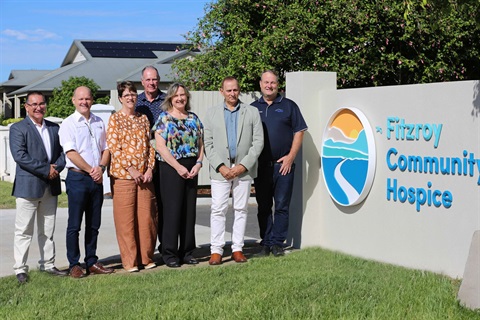On 13 February 2023, the Ministry of Health and Social Welfare of Equatorial Guinea declared an outbreak of Marburg virus disease (MVD) after suspected viral haemorrhagic fever deaths were reported between 7 January 2023 – 7 February 2023 and a case testing positive on 12 February 2023 for MVD.1
Six clinical experts from the Emerging Diseases Clinical Assessment and Response Network (EDCARN) were rapidly deployed to Equatorial Guinea to support the Ministry of Health in its response to the outbreak. The clinical experts in infectious diseases, critical care, and paediatrics were recruited through the Global Outbreak and Response Network (GOARN). WHO helped set up a 20-bed treatment centre in Bata (the most affected district in the country) and an ambulance referral system for the outbreak.
The 20-bed treatment centre was established to provide a high-level of safe and scalable clinical care to patients; the treatment centre was also equipped with the ALIMA2 CUBE (Bio-secure Emergency Care Unit for Epidemics) – a self-contained, easily transportable treatment unit for highly infectious diseases that has been developed by The Alliance for International Medical Action (ALIMA).

“The team of clinical experts supported the Ministry of Health to quickly set up a treatment centre and coordinated an ambulance referral system. Together with multi-country readiness training for filoviruses provided by WHO Africa Regional Office, this shows how WHO can work with Member States to support rapid scale-up of activities for emerging infections.” says Dr Abdou Salam Gueye, Regional Emergency Director, WHO Africa Regional Office.
The deployment of EDCARN clinical experts also supported the Ministry of Health’s capacity-building efforts by providing extensive, real-time training to the national health workforce. The training was provided to a multidisciplinary workforce on the following topics:
- Clinical case management,
- Collection of standardized clinical data (an important training topic given the uncommon and poorly characterized nature of this disease), which will support future research activities.
As the end of the outbreak is in sight, WHO will continue supporting the Ministry of Health on their survivor care programme and continue to provide training to ensure that the national health workforce is prepared for any future outbreaks. “WHO’s investments through the Country Readiness and Strengthening (CRS) programme creates a network of clinical experts who improve our responses to high consequence infections. By providing professional and logistical support, and working with national colleagues, we strengthen clinical care to those with Viral Haemorrhagic Fever and increase the safety of patients and staff during outbreaks.” says Dr Nedret Emiroglu, Director of Country Readiness & Strengthening, WHO Headquarters.







